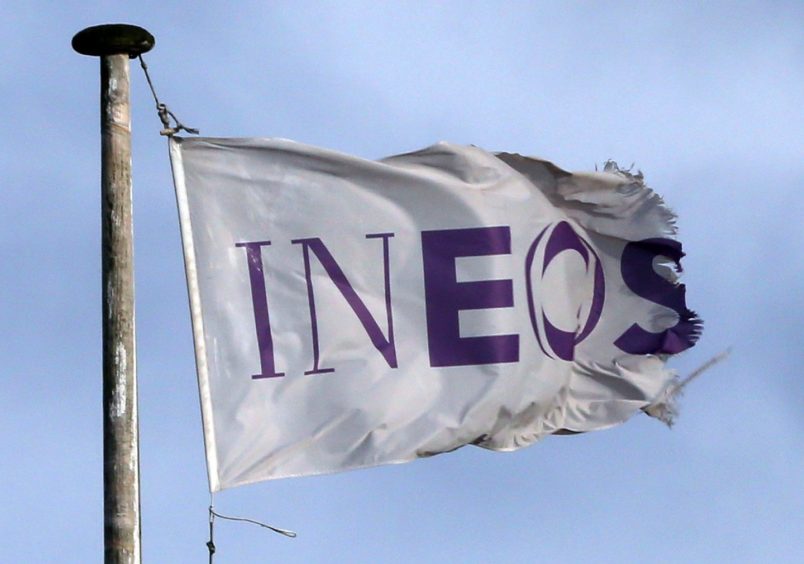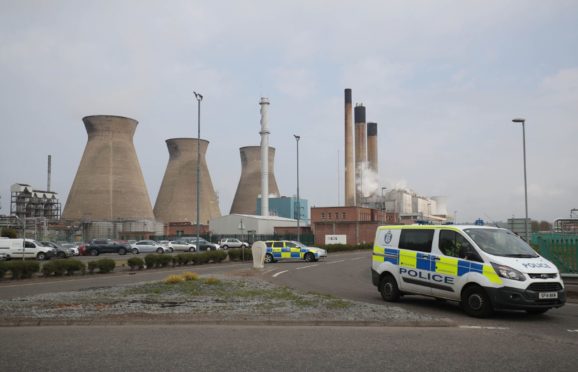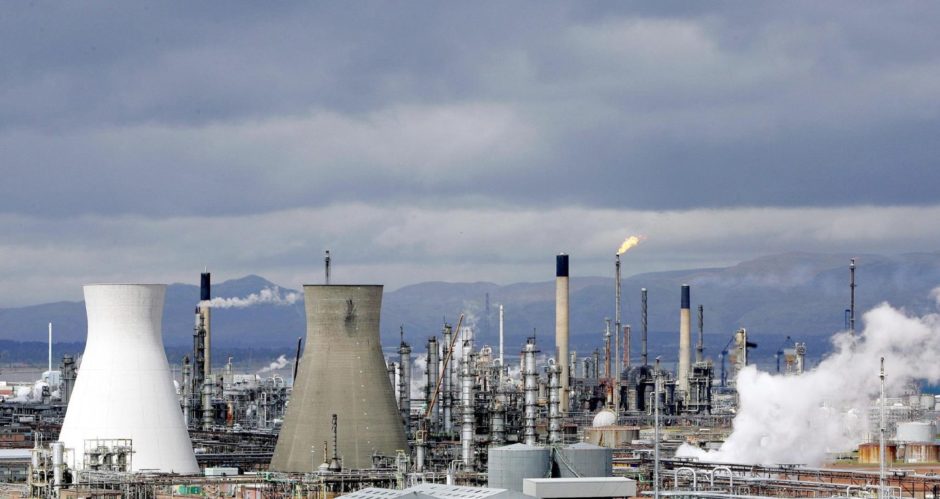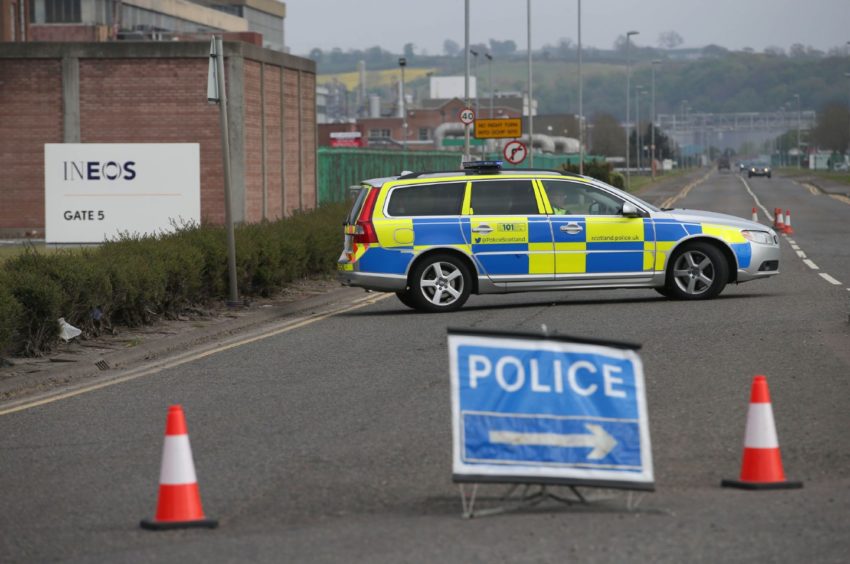A petrochemicals company has been fined £400,000 after a leak from a cracked pipe created a huge explosive gas cloud over a Scottish oil port.
A court heard workers and others nearby were put at potential risk by Ineos Chemicals’ failings.
The firm admitted its safety inspections failed to detect the 10-inch long corroded pipe at its Grangemouth plant, which allowed ethylene gas to escape.
Falkirk Sheriff Court was told the company’s ethylene cracker at Grangemouth had been re-commissioned in 2016 to process methane from the fracking industry in the United States and produce raw materials for the plastics industry.
The plant contained more than 17,500 lines of pipe and the section that failed had been wrongly identified as not high risk and therefore not subjected to insulation strips as part of a regular inspection programme.
This allowed a process called “chloride-induced stress load corrosion cracking”, “conceivably” caused by sea salt.
‘Highest category of major incident’
Giving the company 28 days to pay the £400,000 fine, Sheriff Wyllie Robertson said: “This was categorised internally as the highest category of major incident where there’s a risk beyond the site and boundaries.
“The significant risk was of the ethylene gas igniting, particularly in light of the proximity of the furnaces.
“The vapour cloud could have exploded, resulting in significant thermal effects and could have generated a blast wave.
“There was a risk of death in the event that occurred.
“The fact the gas cloud did not ignite is due in no little measure to safety procedures that were in place and the prompt implementation of them.
“This should serve as a considerable reassurance to those who work there or live or work nearby.”
Gas cloud equivalent of 26 swimming pools
Prosecutor Gavin Callaghan said: “The leak precipitated the formation of a flammable gas cloud of around 65,000 cubic metres – roughly the equivalent of 26 Olympic-sized swimming pools.”
Mr Callaghan, the depute fiscal, said the cloud reached ground level but the plant’s emergency plan was implemented, ensuring there was no ignition and no-one was hurt.
Surrounding roads were closed, workers evacuated, and Ineos’s on-site firefighters put up a curtain of water to prevent the gas reaching the plant’s furnaces where it could have exploded.
No gas was detected outside the periphery of the site.
Ineos (Grangemouth) Ltd pleaded guilty to failing to take steps to prevent the incident, contrary to the 2015 Control of Major Accident Hazards Regulations.
The leak was first detected at 11.50 am on May 2 2017.
The cloud eventually dispersed and the incident was finally declared over at about 9.45 pm the same day.
‘Shortcomings’
Solicitor Paul Marshall, for Ineos, said the company’s emergency response had minimised the risk of explosion.
He said a “design change” had resulted in the line operating at higher temperatures than originally planned, putting it at risk of stress corrosion cracking and Ineos had since made a significant investment in replacing the pipework.
He added the “isolated incident” was the result of “shortcomings in what was an otherwise comprehensive inspection regime”.

The court heard Ineos (Grangemouth) Ltd had no previous convictions.
Some 97 workers were on site at the time of the incident












